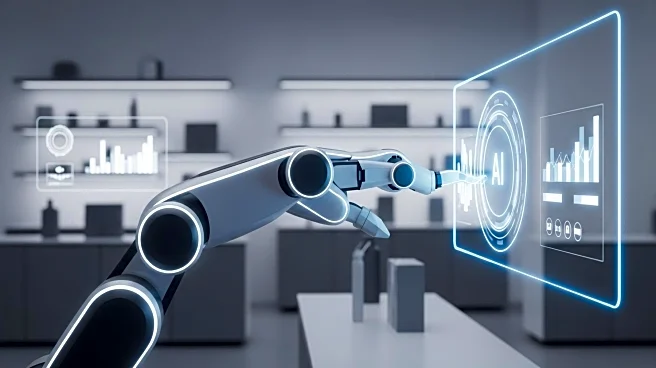What is the story about?
What's Happening?
The retail industry is increasingly adopting artificial intelligence (AI) technologies, despite concerns about the reliability and quality of AI-generated outputs. According to a survey conducted by Monday.com, more than 60% of retail leaders express worries about the consistency of AI outputs. Retailers are also facing significant adoption challenges, including privacy and data concerns, integration complexities, potential customer alienation, high implementation costs, and employee resistance. Despite these hurdles, nearly two-thirds of surveyed leaders believe that businesses failing to adopt AI within the next two years risk falling behind. More than half of the retailers anticipate that AI will handle most customer interactions within five years. Companies like Under Armour and Advance Auto Parts are already leveraging AI to enhance operations, streamline workflows, and improve customer experiences.
Why It's Important?
The push towards AI in retail is driven by economic pressures that compel businesses to optimize costs and streamline operations. As growth rates slow, AI is seen as a critical tool to mitigate economic headwinds and enhance customer experiences. Retailers like Under Armour are integrating AI across various business functions, from design to inventory management, to improve efficiency and execution. This shift towards AI could significantly impact the retail landscape, potentially leading to job displacement and changes in customer service dynamics. Companies that successfully integrate AI may gain a competitive edge, while those that lag in adoption could face challenges in maintaining market relevance.
What's Next?
Retailers are expected to continue investing in AI technologies to stay competitive. Companies like Advance Auto Parts are accelerating the rollout of AI-driven frameworks to enhance assortment planning and store experiences. As AI becomes more integrated into retail operations, businesses will need to address privacy and data concerns, manage integration complexities, and navigate potential customer and employee pushback. The industry will likely see increased collaboration between AI developers and retailers to overcome these challenges and maximize the benefits of AI adoption.

















